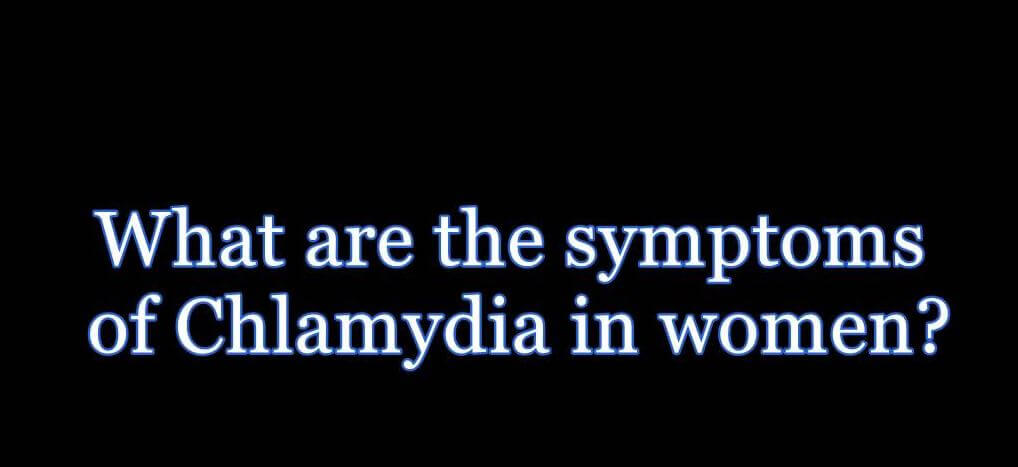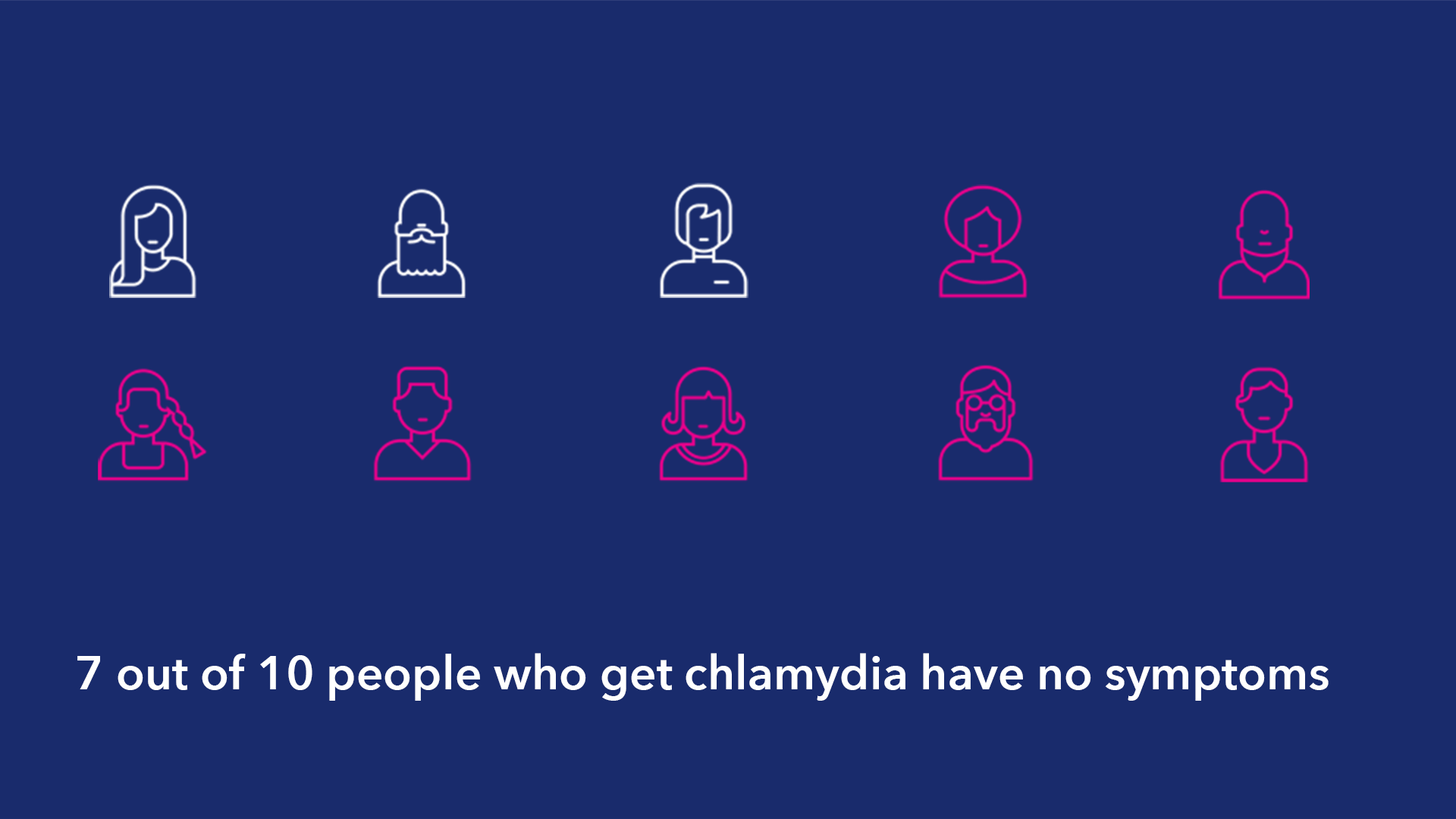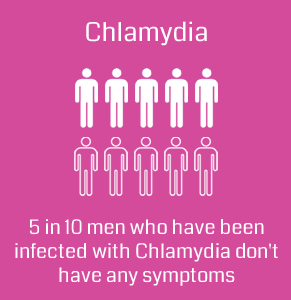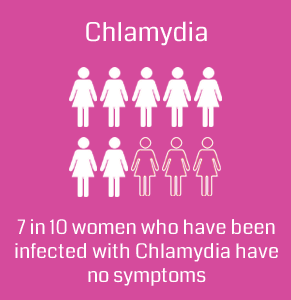
Chlamydia is a type of bacterial infection or a very common type of Sexually Transmitted Disease (STD) found in both men and women. If described medically, Chlamydia is caused due to Chlamydia trachomatisa, a type of parasitic bacteria, very small in size like a virus, which requires another cell biochemical mechanism so as to reproduce.
Apart from Chlamydia, it can cause some other diseases like psittacosis, non-specific urethritis and trachoma. Chlamydia symptoms in women and men are hidden and sometimes doesn’t even show off, making the disease carrier feel that they are totally fine.
Table of Contents
How is chlamydia spread in women and men?
Being one of the most common STDs, it spreads very easily in women and men, because this disease does not show any symptoms. Having sexual contact with someone, who is already infectious with Chlamydia is the major reason behind its spreading. However, here the sexual contacts can be of any type that is from Anal sex to Vaginal sex. Moreover, you can even get infectious while performing Oral sex. If your sexual partner and Chlamydia carrier are male, then you can even get the infection even after he doesn’t ejaculate or cum.
Which also means it can get transferred from a Chlamydia carrier partner to the other, unknowingly. The Chlamydia infection can be carried in vaginal fluid, semen and pre-cum, which starts spreading when getting in touch with some other cells.
How Do I Know if I Have Chlamydia?

Most of the people suffering from Chlamydia do not show any symptoms and feel healthy. Which means the disease carrier might not know that he or she is carrying such an infectious disease. Wherein, there might be the times when Chlamydia symptoms in women and men can be seen.
Symptoms of Chlamydia in Men:

- Watery, milky or pus kind of a discharge from the penis.
- Painful or burning sensation while peeing.
- Swelling and/or pain in one and both the testicles.
- An itchy or painful butthole or anus.
- Bleeding and/or discharge from the anus.
- Diarrhea
- Sweeping around and/or in the anus.
- Infection in eyes causing, discharge, redness and/or itching.
Chlamydia Symptoms in Women/Female:

- Abnormal, strong smelling or yellowish vaginal discharge.
- Painful sex.
- Swelling of the vagina.
- Burning sensation or pain while peeing.
- Anal discharge.
- Painful or itchy anus.
- Bleeding anus.
- More than usual urge to pee.
- Swelling around or in the anus.
- Pain lower back or belly if infection extends beyond vagina.
- Low-grade fever.
- Nausea
- After sex or between period bleeding.
- Infection in eyes causing, discharge, redness and/or itching.
How is chlamydia transmitted?
Like other sexually transmitted diseases, even Chlamydia can transfer from an infectious person to a partner through some sexual activity. Chlamydia is mostly transmitted during vaginal or anal sex. Chlamydia can even transfer if the tongue or penis does not go into the vagina or anus of the infected person.
- If the vagina, anus, cervix, mouth or penis comes in contact with infectious fluid or secretion it can even lead to the transmission of disease. Here we can say it can, but a very less likely transfer from oral sex.
- Chlamydia is most like to be transmitted during unprotected sex when the soft skin covering all body opening i.e, mucus membrane comes in contact with secretion or semen i.e, mucus membrane of an infected carrier.
- This disease can transfer very less likely through oral sex as the bacteria of Chlamydia choose to target genital area more preferably than the throat. And this why it is very rare to see Chlamydia transmission from penis-to-mouth and from mouth-to-penis. However, if get compared from the above twos, the anus-to-mouth and vagina-to-mouth transmission is even rarer. Wherein the mouth-to-anus, mouth-to-vagina are not seen yet.
- Talking about transmission, the women who didn’t have anal sex yet can even get the anal infection as a Chlamydia symptom in Women, as the bacteria can travel from vagina to anus due to many reasons like wiping from toilet paper after using the washroom.
- It can even cause eye infection due to hand-to-eye contact while having a sexual discharge.
- Chlamydia symptoms in women can also pass from mother to her newborn when the baby passes through the already infected birth canal. This can cause the newborn to have, pneumonia, eye infection or some other complications.
- Sexual abuse can also cause a child to get infected with Chlamydia.
How can I prevent a risk of getting Chlamydia Infection?
You can do these things to reduce or prevent a risk of getting Chlamydia Infection:
- Abstinence: You can surely avoid the risk of Chlamydia if you don’t make any sexual contacts.
- Mutual monogamy: If you’ll have sex with only one partner who is not infected with Chlamydia, who is only having sex with you. You can definitely avoid the disease.
- Using Condoms during anal or vaginal sex can surely reduce the risk of having Chlamydia.
- Since Chlamydia can transfer from vagina even if tongue or penis does not enter in, using Condoms is the best type of prevention to avoid any type of skin to skin contact.
- While oral sex, one can use several barrier methods to avoid Chlamydia, which includes plastic wrap, latex condoms or dental dam can reduce the risk of the disease.
- Also, you should talk to your partner regarding the disease treatment. Telling your partner can be tough but remember most of the carriers of this disease don’t even know that they have Chlamydia. It can be possible if you got treated for the disease and had sex with someone still having Chlamydia, it can even make you go infectious all over again.

Chlamydia treatment:
It is very easy to treat Chlamydia through antibiotics. Here, even your sexual partner should also get treated. If you don’t go under Chlamydia treatment it may cause some serious health issues to both you and your sexual partner.
Chlamydia testing: If you show any of the Chlamydia symptoms it is always advisable to get tested for the same. Chlamydia testing is painless and very easy.
The test can include a urine test or rubbing your genitals gently from a cotton swab to take a sample from anus, vagina, cervix or urethra.
Chlamydia treatment: Chlamydia can be very easy to treat where your nurse or doctor will give you some antibiotics so as to treat your Chlamydia infection. Starting from. Single day-single dose this treatment can even last for seven days as well. The doctor will make the decision on how antibiotics or treatment you will require to get rid of the disease.
If you have begun your Chlamydia treatment it is also advisable for your partner to get tested and if found treated as well. Otherwise, you will keep passing the infection back and forth to each other.
Things you should know if getting treated with Chlamydia:
- You should always take the medicine prescribed by your doctor as per the described dosage.
- Even if the symptoms go away the infection stays in your blood and hence you should follow the treatment course.
- Along with you, if infectious then your partner should also start the treatment, otherwise you or anyone else can get re-infected with the disease.
- If you have a single dosage of medicine doesn’t have sex for at least 7 days. It is always advisable not to do sex for 7 days during the treatment period.
- If you have a 7-day dosage of medicine then you should avoid sex until you finish your pill.
- If you and your partner both are into medication, avoid sharing each other’s medicines, as the dosage may differ from person to person.
- Get tested in 3 to 4 months again to make sure the Chlamydia infection is gone.
- Make sure you and your partner take all the medicines prescribed by the doctor.
- Even if your Chlamydia is gone and you are successfully done with your treatment you can even get infected if exposed to an infectious person.
- Chlamydia is not a kind of one-time deal, it is advisable to use condoms and get yourself and your partner tested regularly.
What will happen if you don’t get Chlamydia treatment?
Though Chlamydia rarely shows symptoms and it a very common type of STD, if it is not treated early it can create a big mess.
- Chlamydia can reach up to fallopian tube and uterus causing PID (Pelvic Inflammatory Disease). At first, PID does not show any symptoms but later it can be very painful, even lead to ectopic pregnancy or infertility. By getting tested for Chlamydia you eventually reduce your chance of getting PID.
- In men, Chlamydia can cause nongonococcal urethritis (NGU) that is an infection of the urethra (a tube used to pass urine). It can also cause epididymis, which is an infection of the epididymis. The epididymis is a tube carrying sperm away from testes. It may also cause proctitis that is an infection of the rectum.
- Chlamydia can amplify your chance if getting caught by HIV, a type of virus causing AIDS.
- A pregnant woman suffering from Chlamydia if not treated early, she can pass the infection to the newborn as well. It can cause pneumonia, eye infection and too early birth in babies.
By getting tested and treated in the most procedural manner you can avoid all these harmful causes of Chlamydia.




























